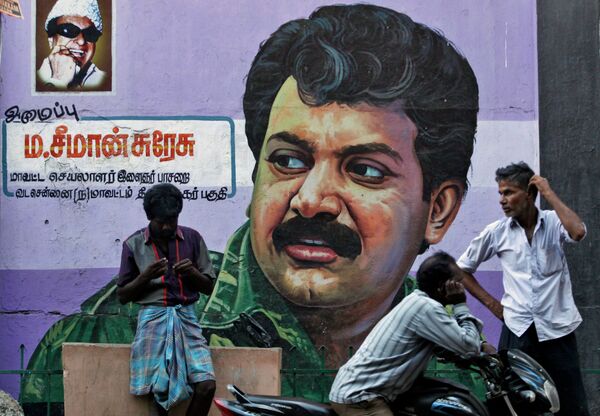The Tamil family applied for asylum in 2009 but were rejected and deported and subsequently detained and questioned in Sri Lanka's capital Colombo for 13 hours, the court in Strasbourg heard.
The asylum seeker, known in court as "Mr. X" and his wife and children were released and returned to Switzerland — Mr. X was then arrested and imprisoned for two years before he could return to Switzerland.
The court heard in the "case of Mr. X" that he suffered "beatings" at the hands of the authorities.
One of many torture victims who have sought asylum in Europe, only to be returned to Sri Lanka to re-live their ordeal.
— Sri Lanka Campaign (@SLcampaign) January 27, 2017
Swiss-based NGO Society for Endangered Peoples welcomed the court's decision, claiming torture is still being used in Sri Lanka.
Sri Lanka, a former British colony gained independence in 1948 with power shifting to the island's Sinhalese majority. Tamils, a minority people from Tamil Eelam wanted to declare their land as an independent state and civil war erupted in 1983 between the government and the Liberation Tigers of Tamil Eelam (LTTE).

Sri Lanka's civil war ended in 2009. In 2011, a UN report concluded that both sides had committed war crimes against civilians, however many Tamils claimed the Sri Lankan government was still torturing rebels. More than 70,000 people died in what Tamils claim amounted to genocide with men tortured, women raped and villages shelled.
PTA must be repealed to address Sri Lanka's culture of torture — UN Special Rapporteur report https://t.co/sHWtafns6B #Tamil #lka
— Tamil Guardian (@TamilGuardian) January 26, 2017
A recent report published in Britain exposed practices of torture by the Sri Lankan government as recently as 2013. The same year Tamil asylum seeker, Mr. X and his family was sent back from Switzerland to Sri Lanka, with Mr. X subsequently tortured.
Since 2016, the criteria for Tamils claiming asylum in Switzerland became stricter over beliefs the human rights situation for Tamils had improved in Sri Lanka. However, many Tamils, NGOs, lawyers and politicians say they could still face torture if they returned.
Judgment X. v Switzerland — authorities failed to properly consider risk of ill-treatment when deporting Tamilhttps://t.co/gHhuNJtV9Y#ECHR
— ECHR Press (@ECHR_Press) January 27, 2017
This recent ruling by the European Court of Human Rights that the Swiss authorities failed to properly consider the risk of ill treatment when deporting a Tamil family would appear to chime with those concerns.


